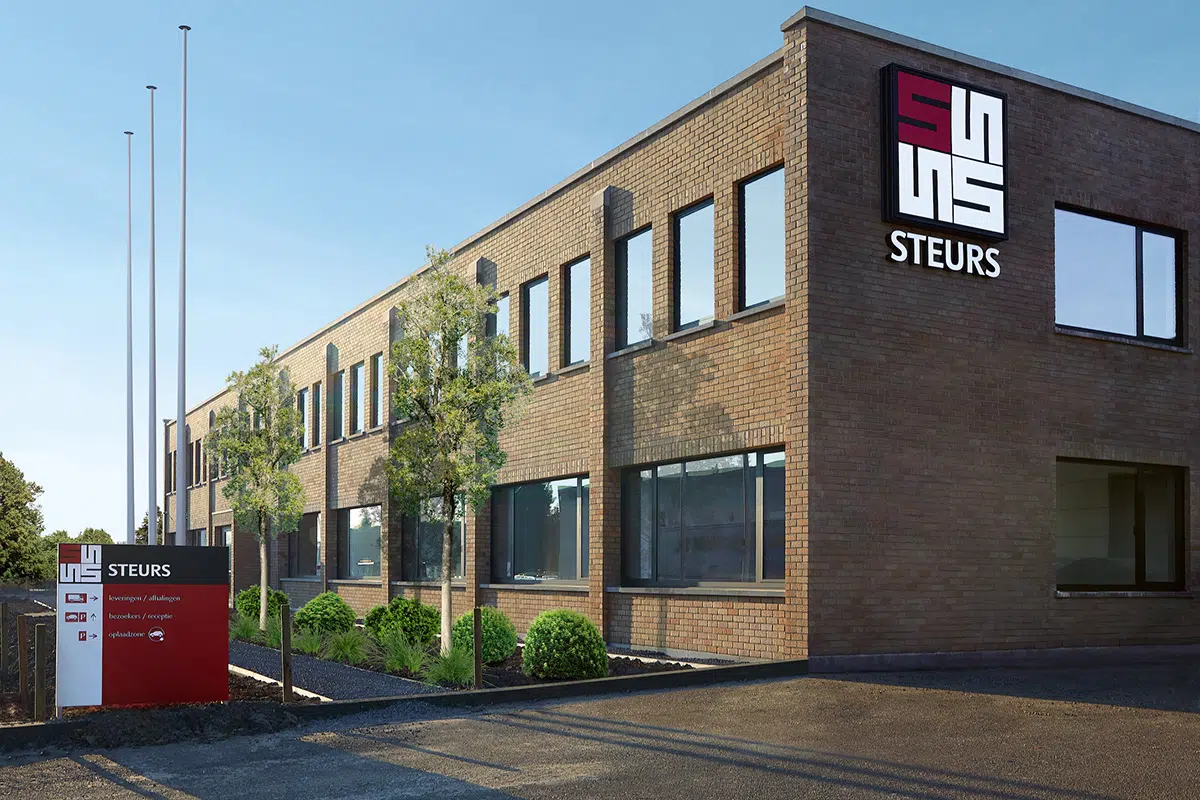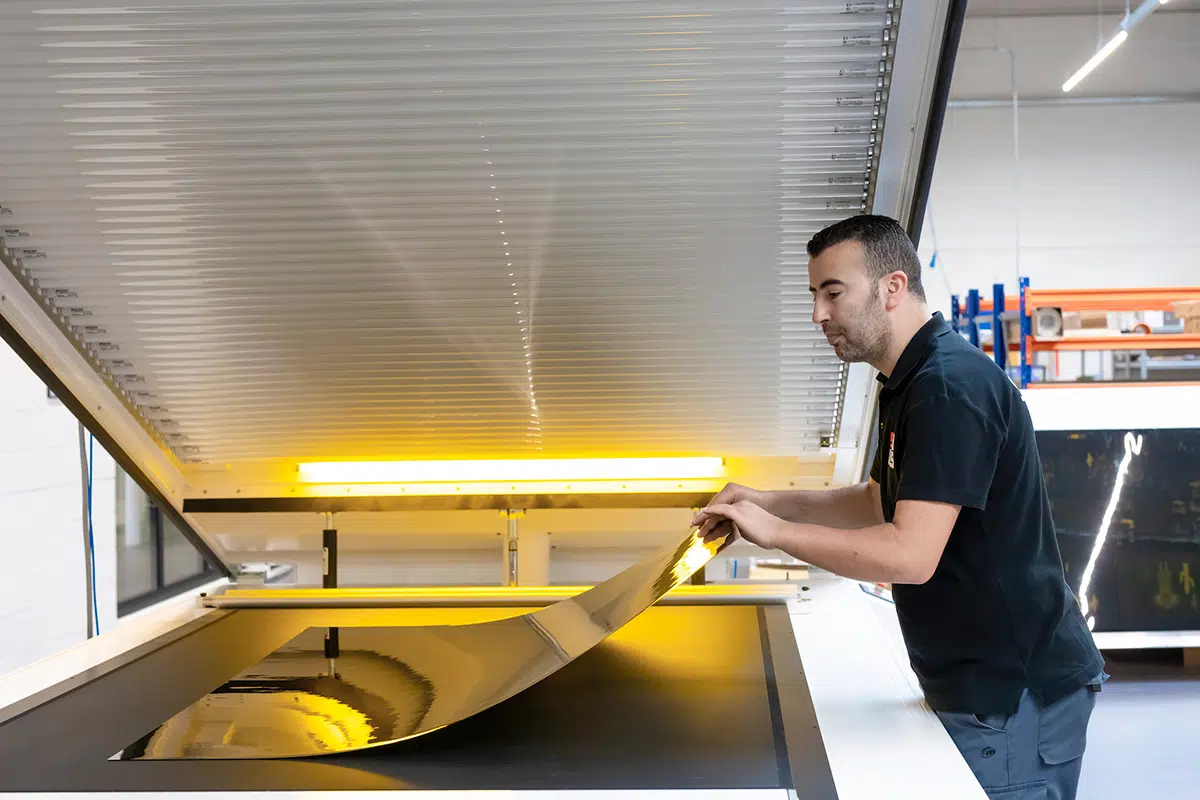Steurs reflects on how introducing flexo into its printing offer, 'to broaden its appeal to brands and converters', was a winning formula, for creating solutions for today and tomorrow.
An anniversary is a time for reflection: a time to pause, look back, and see distance traveled. Steurs Graphic Solutions can look back a long way — 70 years, to 1949, when the two Steurs brothers started what has become one of Belgium’s leading packaging prepress houses. The backward look will be a short one, however, because all eyes at the Antwerp-based business are firmly fixed on the present and the future — “on continuing to create solutions for today and tomorrow”, as the company’s tagline has it.

Those solutions have to do a lot in today’s packaging market, says general manager Dirk Cantens. “We work across all three processes — gravure, offset and flexo — and the full spectrum of packaging materials: metal, plastic, folding cartons, glass and foil. So not only are we operating in a sector that’s constantly changing, but one where every brand, printer and converter has their own needs. Every environment is different.” He adds, however, that there are some challenges that all these players face. “To stand out, packaging has to make an impact. We call it ‘getting to the heart’ of the consumer. And impact is a combination of things — colour, image quality and, of course, creativity.”
R&D is the difference
Steurs offers its clients all three, positioning itself as a 360-degree service provider of prepress, premedia and creative design. Since 2014 a further string to the Steurs bow has been the R&D department tasked with solutions development. Explains Cantens: “R&D is critical to our philosophy, which is that to be a serious prepress partner you have to be able to innovate — to develop tailormade solutions to customers’ challenges. The department works closely with our sales and production managers, and is almost always at the table when we’re talking to brands and converters. We believe we’re the only prepress supplier in our region that does this.”
So how does the approach work on a typical project? After the initial briefing, R&D creates a project plan to establish the steps needed to develop and implement the proposed solution: for example, custom testing on the press, followed by in-depth analysis. Next, Steurs engineers the proprietary screening and/or color management solutions — branded S-dot and S-color respectively — needed to deliver the project and submits recommendations to the customer. After sign-off, the solutions are implemented into the workflow.
Broadening flexo’s appeal
“In the last decade flexo has come on leaps and bounds. So we decided to make NX the platform for a new strategy to promote flexo as an alternative to the other processes.”
S-dot was among the first products of Steurs’ R&D investment, and illustrates the thinking behind the decision to set up the department. The initial objective, Cantens explains, was to broaden the appeal of flexo to brands and converters. “It’s accepted that flexo has advantages over offset and gravure: lower cost, greater flexibility as regards substrates, and shorter lead times — and these are all important to brands and their printers. But in the past doubts about print quality and consistency outweighed them — things like lower densities and flexo edges.
“That changed when Flexcel NX arrived on the scene, and in the last decade flexo has come on leaps and bounds. So we decided to make NX the platform for a new strategy to promote flexo as an alternative to the other processes, and made it a priority for R&D to develop solutions for high-quality flexo to increase its quality and stability.”

He describes S-dot as a group of screening technologies that Steurs applies to Flexcel NX to control ink transfer and dot gain either locally — in specific image areas — or across the plate. “This means we can print variable densities of the same color on the same plate, reproducing higher densities for solid colors while reducing dot gain in screened areas. There’s no edge on barcodes, and text is sharper. Whatever the substrate, we can guarantee these results. Today, more and more brands are convinced of flexo’s benefits, quality concerns have faded, and they’re willing to consider moving products across.”
Asked how Steurs makes the case for flexo to brands and converters, Cantens’ reply is concise: “We simply show them. We have an increasing number of successful projects in our portfolio: these show what’s possible — the faster time-to-market, the lower costs, and so on.”
Steurs can also show prospective customers an expanding awards cabinet, home to a Benelux Packaging Innovation Award (for S-dot) and a gold award in 2018’s inaugural Kodak Global Flexo Innovation Awards. The entry, printed CMYK on high-shrink PET-G material, was a joint project between Steurs and printer Helios Packaging, with whom Steurs has worked since 2016. The relationship came about when Helios — predominantly a gravure producer of shrink sleeves — decided to focus 100% on flexo.
This radical change in strategy was driven by three new customer requirements: shorter lead-times, shorter runs, and greater cost-efficiency. “It was a bold decision by Helios,” says Cantens, “but one based on a clear understanding of how the market is changing, particularly the retail sector where most of Helios’ business is. It was made with eyes on the future.” Approaching Steurs was a natural next move, and the last three years have seen steady progress in testing and fine-tuning new S-dot technology, including extending its application to shrink-foil.
“We don’t need to sell aggressively, usually the samples speak for themselves, and all that the brands ask of us is that the flexo result is equal to, or better than, gravure.”
The result is a growing number of brands looking seriously at flexo as an alternative to gravure and offset. “We don’t need to sell aggressively,” says Cantens. “Usually the samples speak for themselves, and all that the brands ask of us is that the flexo result is equal to, or better than, gravure, and that the design doesn’t have to change.” He acknowledges that there remains a lingering perception that quality is an issue, but says it’s fading with every successful gravure-to-flexo conversion. “Each day we’re proving the opposite.”